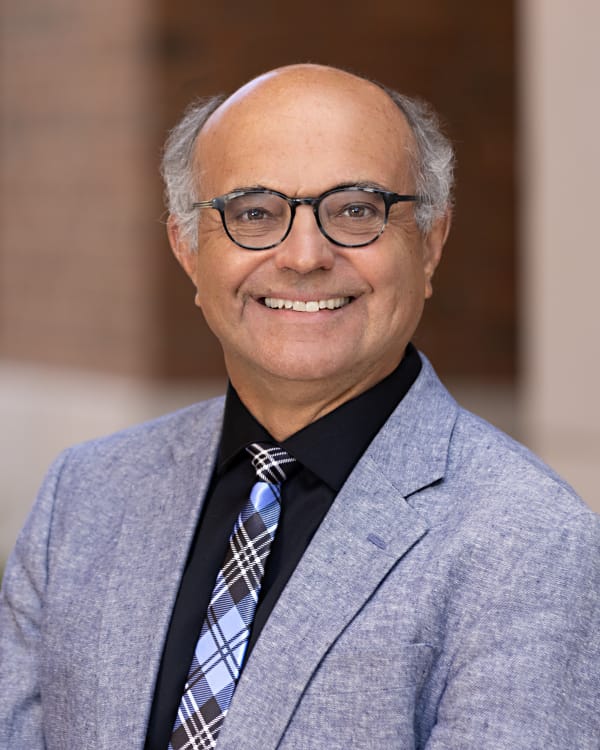By Madalyn Paltzik, Rose Law Group Reporter Intern
Paul Basha has a distinctive reputation for his thorough analyses and ability to solve complicated transportation safety and efficiency problems. He has been a valuable resource in analyzing and solving transportation problems for numerous municipalities, including Phoenix, Tempe, Gilbert, Mesa, Surprise, Maricopa, Carefree, and Scottsdale. For more than five decades, Paul has dedicated his career to understanding and preventing traffic collisions. As a seasoned traffic engineer and mentor, he has studied crashes in painstaking detail, knowing that behind every statistic lies a family disrupted and a life forever changed. Yet, beneath his technical expertise and professional accomplishments, what defines Paul most is something far simpler: kindness.

Paul often points to the everyday moments that shape his philosophy. Living on a narrow Scottsdale street, he is the first to pull aside and let another driver pass, always offering a hand raised in thank you, even when the other driver does not respond or cannot see him through tinted windows. “I always find a place to get out of the way, so you know, where there is a space between parked cars, so the other car can drive past. And then I thank the other car, the other driver. I did something for them, but I thank them,”
Paul says. That small act, repeated countless times, captures his belief that kindness is not only a gift to others but a discipline that keeps him grounded in compassion. He explains, “I really do it for myself. To put myself in a place of gratitude because I do not want to be angry, because it is so easy for me to get angry at other drivers.” Paul understands that car accidents happen because somebody was not thoughtful or careful, too entrenched in their world to recognize that we all share the same planet.
When he is driving in the rightmost through lane, and approaching a red light, with no vehicles in front of him, if possible and safe, he will change lanes to the leftmost lane to keep the rightmost lane open, to allow someone after him, who might be turning right, to be able to turn right-on-red.
This practice of gratitude is deeply connected to Paul’s work. “I’ve studied collisions for 50 years, so I know they happen. And I know they are serious. Even if only a car is damaged, it remains a big intrusion into the life of a person. And it might be a very serious injury… paralysis or brain damage or even death,” he says. Those realities make bad driving hard for him to watch. But years ago, after explaining his frustration to a police officer about a reckless driver,
he received a piece of advice that stuck with him: “Sir, that’s that person. Don’t let that person ruin your day.” Paul has carried that lesson with him ever since.
His commitment to kindness extends into mentorship and leadership. In presentations to young engineers and planners, Paul shares a simple framework: “Before you say something or do something, quickly think about it. Does it make the world a better place or a worse place? Does it make that person’s life better or worse? Does it make that person’s day or even moment better or worse? And then decide if you will say or do that,” Paul advises. It’s a philosophy he has lived by, one he also passes on to his daughter as she navigates challenges in balancing motherhood, work, and respect for her supervisors. To Paul, kindness is not passivity; it is strength, self-discipline, self-restraint, and the willingness to elevate conversations rather than escalate them.
At Rose Law Group, where Paul’s office is based, kindness is the existing culture, one he helps cultivate. From complimenting colleagues on small details to thanking others for their daily contributions, Paul models the rare but powerful habit of consistent gratitude. As he reflects, “We have a choice every minute of every day to make our lives and other people’s lives richer and better and more comfortable and more meaningful.”
Paul’s influence reaches beyond engineering and office walls. As a part-time teacher at Arizona State University, he ensures that technical rigor is balanced with compassion. “Information, data, and calculations on a computer screen can sound harsh,” he admits. “But when I meet and interact with students in-person, I want them to know that I care about them as humans first.” His goal, always, is to humanize the field of traffic engineering — to remind both colleagues and the public that road safety is ultimately about protecting people, not just cars and intersections.
Through stories of burnt toast at breakfast, workplace frustrations, and even sitcoms that normalize conflict, Paul has learned that the choice to be kind — to say thank you instead of lashing out, to compliment instead of insult — changes not just others, but himself. His favorite reminder comes from a timeless song: “Let there be peace on earth, and let it begin with me.”
For Paul, that line is more than music; it is a life’s work.

